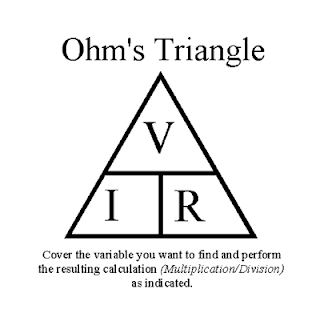Hello dear Students!
This
lesson will be quick and painless, as this is one of the easiest things to
learn: Ohm’s Law! (Or My Law!)
Named after me, Georg Ohm, Ohm’s Law can be rearranged into three
different equations:
V=IR
I=V/R
R=V/I
If you have the original Ohm’s Law (V=IR), you can double the
current by taking away half of the resistance. However, if you half the
current, you have twice the resistance. All three things, resistance, voltage,
and current depend and relate to one another.
The whole purpose of this
is to illustrate the relationship between Voltage, Current, and resistance, and
tie in how they correlate to one another evenly.
You use Ohm’s Law when
you’re trying to solve problems for circuits, or if you’re simply attempting to
find how many ohms or how many volts an objects has. Though there is very
little information on it except for the basic principle, people consider the
“law” I developed as one of the most important tools in electric physics.
I hope you enjoyed my
discovery and use it to your advantage one day!
~Georg
Ohm (and The Scientists)


nice really helped for GCSE revision
ReplyDeleteAmp's but gets stuck at such a bad time!!!
ReplyDelete